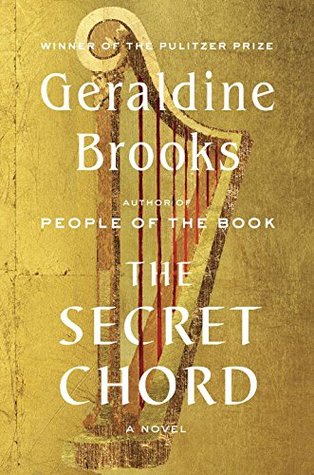Southern Ontario is known for haunted
locales – everywhere from Windsor to Toronto – and my family lives right in the
middle of it all. As I've said before, I haven't experienced any
ghostly occurrences myself, and to be honest, I don't really want to.
That doesn't mean, however, that I haven't been privy to some moments
of strangeness, so here's a focus on the local for this Halloween.
Kennedy and I can watch some pretty bad
TV together – cooking competitions on the Food Network,
quasi-educational shows on the History Channel, anything with Penn &
Teller – and sometimes, when nothing else is on, Paranormal
Witness or Celebrity Ghost Story. The connecting theme
between all of these shows, I'd guess, is a reality-lite vibe;
nonfiction that sits between manipulated competitions like Survivor
and serious news shows like 60 Minutes. One night, when
there was really nothing on in our 500 channel universe, we
started to watch My Ghost Story. This show follows the
familiar format of witness narration plus actor reenactment, but the
look was cheap and cheesy. Halfway through, just as Kennedy and I
stood up to go to bed, the teaser clip for the story that was to
start after the commercial break showed that the next haunting would
be set in Kitchener – ten minutes from home – so we sat back down
and watched.
It was a strange story too: The Unity
Church was experiencing unexplained phenomena and had called in some
investigators (we have ghostbusters in Kitchener?) The story
was told from the point of view of these investigators, so they
started by explaining that the Unity Church is basically Christian
(and they showed a huge stairwell covered in crosses and Jesus
portraits) but they also incorporate New Age elements like chakra
opening sessions and candle lighting ceremonies. After recording many
light and sound events, the investigators played a recording that
they said sounded demonic (but over the TV, it was hard to tell what
it sounded like) and they concluded that since this church was
actively trying to communicate with the spirit world, they had likely
unwittingly opened a channel that had let through a dark spirit. As
these were just investigators – not cleansers – that's where the
story ends; some inconclusive photos and audio. Kennedy and I
shrugged and said we should keep an eye out for this Unity Church,
and that was that. But...just three nights later, after dropping
Mallory off in Kitchener for a dress rehearsal, as we got onto the
7/8 back to Cambridge, we both turned our heads and saw, at the same
time, the Unity Church – where we have passed by dozens and maybe
hundreds of times before – its name lit up in large white lights
overlooking the highway. Now, it's logical to say that we, having
passed it so many times, were both subconsciously aware of this
church's existence and knew to look for it there, but it was an
interesting enough coincidence to be slightly chilling.
Interesting enough that I told Rudy
about it the next time I saw her. And Rudy said that that reminded
her of a story a client had told her. Apparently, this client was a
single mother, and after scrimping and saving, she was able to put a
down payment on a small house for herself and her daughters to live
in. In their last walkthrough before taking possession, the Mom was
able to finally bring her girls through to see where they would soon
be living. The homeowners were present for this walkthrough, and they
were very friendly, asking the girls which room each would be picking
and advising the new owner about anything she should know. Feeling
really positive, the Mom and her girls went to leave, and the current
homeowner said, “And you don't need to worry about all that stuff
you see about the house on the internet. We had a cleansing and the
ghosts are totally gone now.”
Cleansing? Ghosts?
This was the first Rudy's client had
heard about any of this, and her girls were suddenly terrified, and
the homeowner realised that she had made a mistake.
“I'm so sorry,” she said. “But if
you put the house's address into Google, you apparently get all the
links to the story and the TV show we were featured on. I assumed you
knew. Everybody does.”
TV show? Everybody knows about
this?
“But, really, don't worry. It's been
cleansed.”
The woman went home, popped the address
into Google, and watched the My Ghost Story that featured the
house she was about to move into. Great. Having no other choice, the
woman and her girls ended up moving into the house, and happily, it
certainly appeared to have been cleansed (if, indeed, it ever needed
to be). She has never had a paranormal experience in her home, but
since she is now planning some renovations, she told Rudy that she's
keeping her fingers crossed that they won't reawaken anything. Dun dun.
When I took Mallory on a campus tour at the University of Toronto, I told her that I heard that the school has some good ghost stories (something I'm vaguely aware of since Robertson Davies was a master at Massey College and set some haunted tales there). That was intriguing enough for Mal to ask the tour guide for details and this is what she said: Something like a hundred years ago, two stonemasons were building a tower that was to have parapets at each corner. As they were working on the final corner, one found out that the other was sleeping with his wife, and after some fearful axe and trowel fight (there is still a heavy wooden door scarred from the battle), one of these men was killed and the other disappeared. Efforts were undertaken to later finish this final parapet, but accidents always befell the workers; masons who would ultimately refuse to return to the project. Eventually, a fire revealed a skeleton in an airshaft that no one had known about, and at that point, it was decided to leave the tower unfinished. The story wasn't particularly spooky, but Mallory said that the presence of ghosts actually made the school more attractive to her.
 |
| Note the unfinished tower at left. |
Even closer to home, Kennedy was
recently telling me that she heard a story about someone who was
working as a security guard at the abandoned property formerly known
as the Preston Springs here in Cambridge. In its Victorian heyday,
this hotel offered its guests restorative sulfur baths and the
accommodations themselves were lavish and posh. Likely due to medical
advances, the sulfur baths eventually fell out of fashion and the
hotel sank into disrepair. Long before we moved into the area twenty
years ago, the boarded up building was a magnet for homeless people and partying teenagers,
and over the years, there have been numerous small fires and other
mischief at the site.
Some years ago, a development company
bought the Preston Springs – I believe to turn into condos – but
other than completing a much needed facelift for the outside, the
company didn't achieve much before going bankrupt. As it sits now,
the property is once again for sale, and in order to keep vandals
away from what little value the site holds, someone or other has
retained a company to watch over the hotel at night. Enter our
security guard.
According to this fellow, he showed up
one evening, and to his surprise and dismay, he could see light
coming from one of the upstairs windows. Suspecting a fire and armed
with only a walkie-talkie and a flashlight, he unlocked the front
door, entered the foyer, and was shocked to see that a grand
chandelier was glowing at the top of the stairwell. He had never noticed this chandelier before, and assuming that renovations had begun again
without his knowledge, he climbed the stairs – spiralling up, landing to landing – to see if there were any
workers left in the building. He went from room to room, and after
satisfying himself that there was no one around, he called in to his
supervisor to report what he had seen.
The supervisor listened carefully to
what our man had to say and then replied, “You know there's no
electricity at the hotel.”
“Yes,” the guard replied, “I know
there wasn't before, but it's hooked up now.”
The supervisor told the guard to
re-search the area for intruders and to turn off the chandelier. The
guard rechecked the entire top floor, was once again satisfied that
there was no one present, and when he approached the top of the
stairs, he felt two hands push him hard between the shoulder blades.
As he toppled uncontrollably down to the next landing, the stairwell
went black; the chandelier had turned off.
The guard scrambled down the rest of
the stairs, hightailed it out the front doors, called in to his
supervisor again, and waited for the police to show up. When the cops
heard the story, they led our man back into the foyer, and with a
flip of a few switches, discovered that there was indeed no
electricity in the building. When the guard tried to protest that the
chandelier at the top of the stairs had certainly been working
earlier, a sweep of flashlights revealed that there was no such
chandelier up there. As you might guess, a search by the police
found no intruders present, yet with all exits firmly padlocked, the
only way out was through the front doors which the security guard had
been too afraid to stray away from; and he could confirm that no one
had gone past him.
We've always thought that the Preston
Springs is a beautiful historic building and that it's a shame no
one has been able to do anything with it. Perhaps – just perhaps
– some force has been at work to scupper such efforts as all
attempts at renovation have been plagued with accidents, setbacks, and
money issues.
When I asked Kennedy to confirm the
details of that story for me, she reminded me to mention something
even closer to home. Kennedy has always enjoyed a good ghost
story and has collected all of the Amityville Horror movies
(and not just because she was crushing on Ryan Reynolds after the
2005 remake of the movie came out). One summer, we decided to drive
back from Nova Scotia through the States. We went to Boston (because
we saw on the Food Network that the lobster roll at B & G's was
named the best sandwich in America – see? It all comes back to
these reality shows) and as we then planned to drive to NYC, I
suggested we detour to Long Island on the way and eyeball the actual Amityville
house.
Because the house happened to be for sale at
the time, Dave was able to easily find the address online and we drove past
it, parked and let Dave and Kennedy walk past it, and when we didn't
want to appear too stalkerish by hanging out overlong (as if any
dog-walking neighbours didn't know exactly what we were doing
there with our Ontario plates), we drove to the other side of the
river where there was a little park and we could sit and stare at the infamous boathouse area at the back of the property. Kennedy had
eventually had her fill and we headed for Hoboken (to buy some
incredibly delicious lobster tails at the Cake Boss' bakery –
see where reality TV leads us?)
What Kennedy wants me to remember here
were the flies that got into our van somewhere along the way, and no
matter how we tried to shoo them out the windows, there seemed to be
at least one fly buzzing around in there for the rest of our
vacation. Flies are, obviously, not some totally paranormal phenomena, but Kennedy
remembers being plagued by flies for a year (like a scene right out
of Amityville Horror itself) and she was especially distressed
when she found a fly buzzing around her bedroom in the dead of winter.
Of course none of these stories suggest
that I've been haunted, but it seems that you can't swing a (toy)
black cat by the tail around here without hitting someone who thinks
that they have. Who am I to judge?























